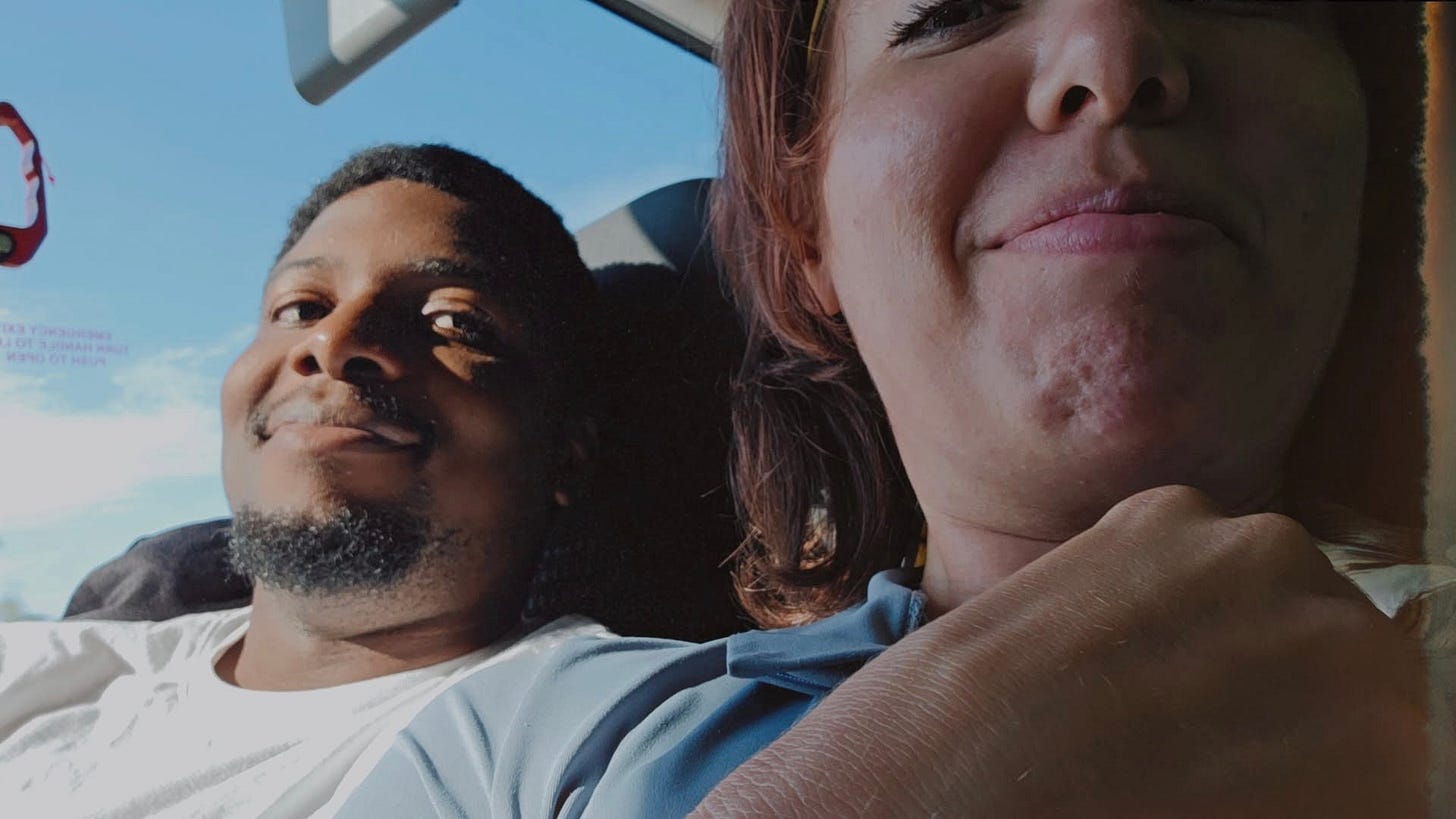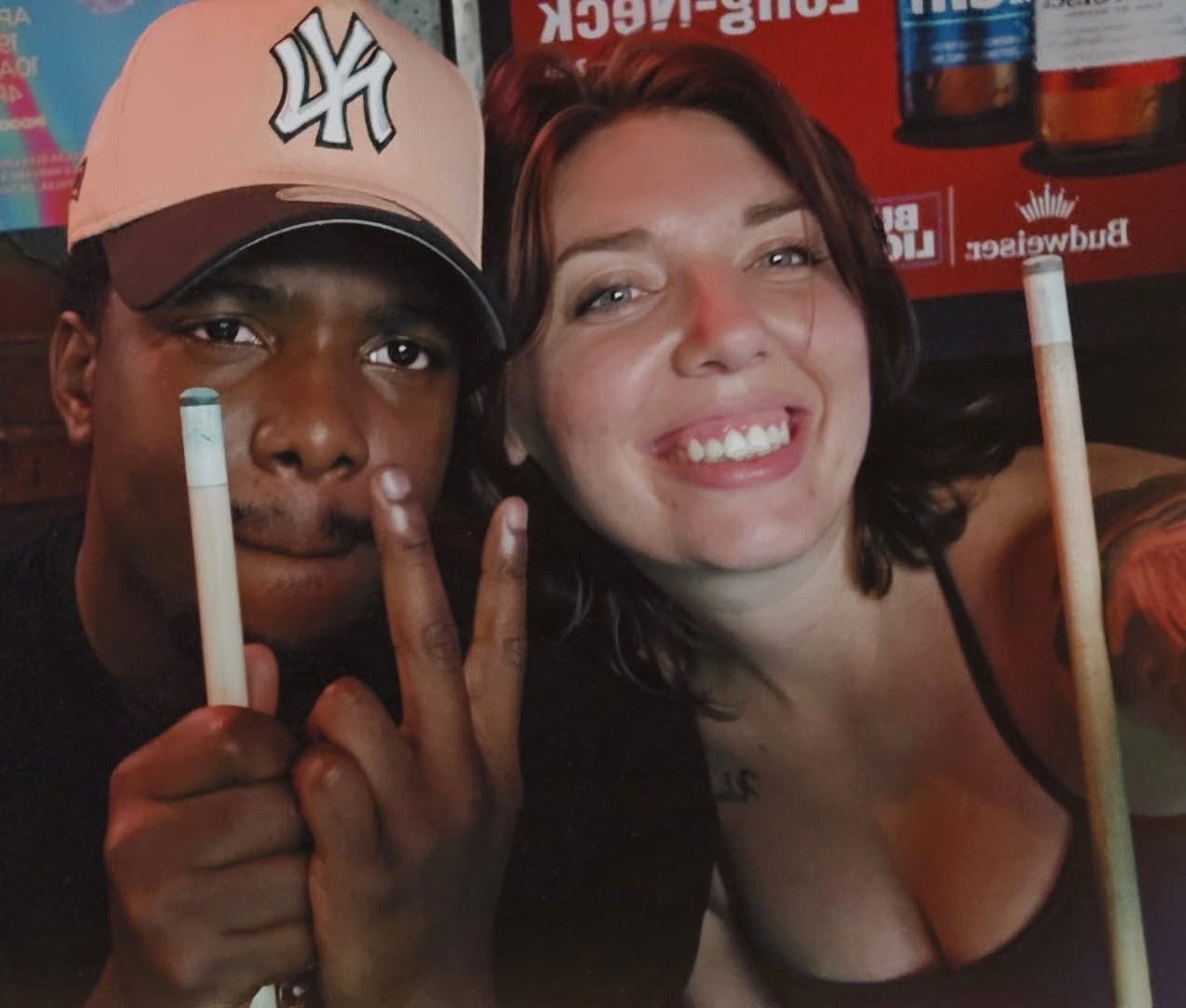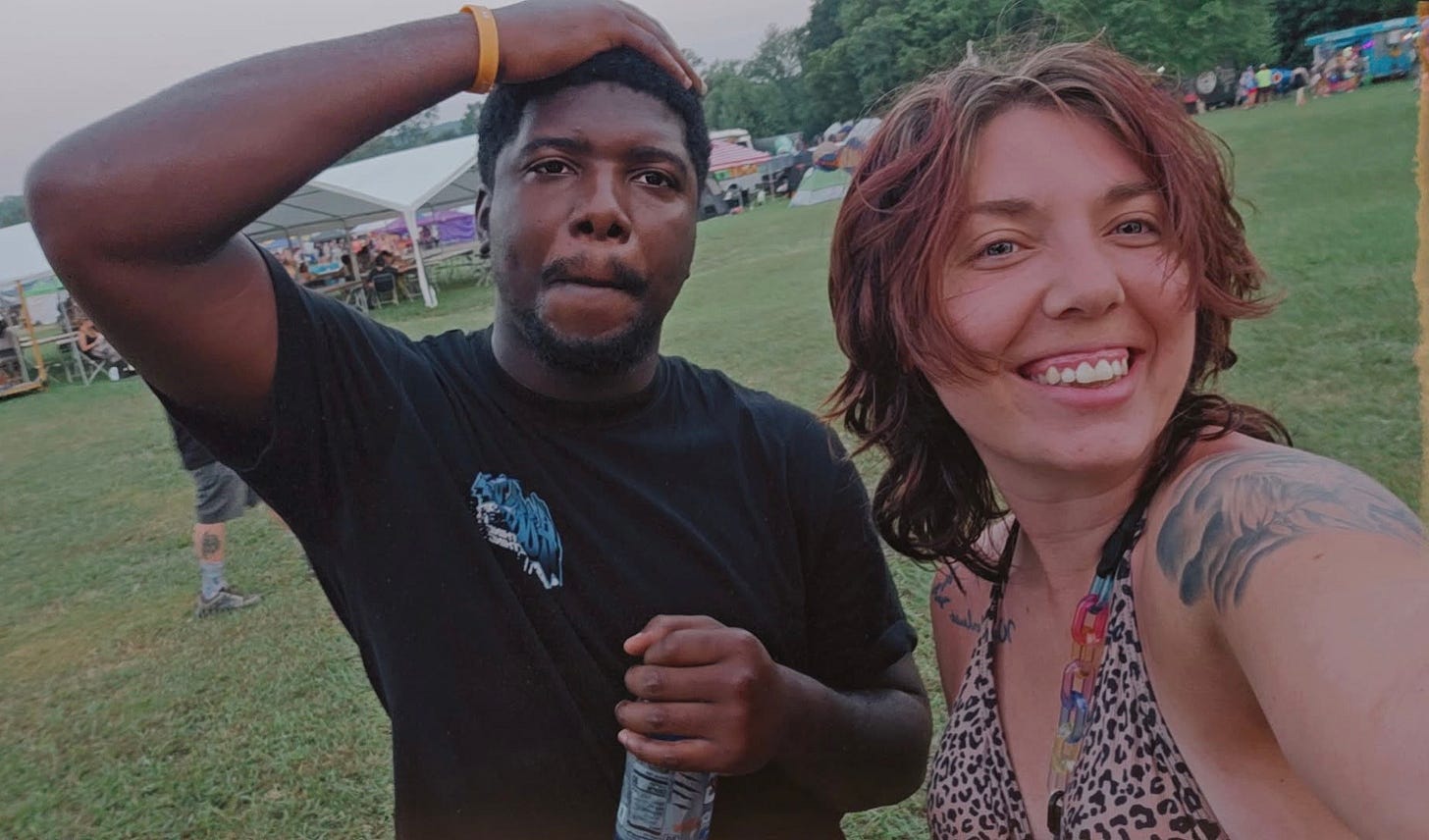Captured When No One Is Watching: How a Traffic Stop in Arkansas Became A Detention For ICE
By Nick Valencia | November 1, 2025
FORT SMITH, ARKANSAS— When the blue lights flashed in his rearview mirror that October morning, Agustine Nze Edu didn’t think much of it. He was driving his uncle’s truck back from helping a friend move, crossing the border between Oklahoma and Arkansas. He wasn’t speeding. He wasn’t swerving. There was no broken taillight or expired tag.
Back in Tulsa, his fiancé Taylor Spurling, was on the phone with him. He joked that he must have looked suspicious in an old pickup.
“He figured it was just a routine stop,” she said.
It may have started like any traffic stop, but it never quite became one.
“As soon as the officer heard his accent, everything changed.”
“‘I want to make sure you’re not one of them illegals running around,’” Taylor said she overheard the officer say on the phone. “That’s a direct quote,” she said retelling the incident.
Nick Valencia News reached out to the Arkansas State Police for a comment about the stop, but have not yet heard back.
The quiet side of enforcement
Originally from Equatorial Guinea, 25-year-old Agustine grew up in England before moving to the U.S. to study. He grew up well-mannered and polite, so when the officer began asking more personal questions during the traffic stop, he didn’t take anything personally.
The officer didn’t say why he pulled him over, Taylor recalled.
“He just started asking where he was from.”
Was he here legally? Was he married to an American? How long had he been in the country?
“I’ve never heard a cop ask those kinds of things,” Taylor said. “It didn’t sound like a ticket. It sounded like an interrogation.”
And then everything went sideways. Through the phone, she heard the voices multiply — sharp, overlapping, urgent.
“They were shouting, asking him if he was illegal. He kept saying, ‘I’m a student. I’m here legally.’ But they were talking over him.”
“Two hours later, I found out he was in an ICE facility.”
Taylor says her fiancé counted at least eight others who were detained that same day in Fort Smith alongside of him. That’s a lot for a small, working-class town where most residents never heard about it the detentions.
In big cities, ICE raids draw cameras, outrage, and protest. But in places like rural Arkansas or northern Louisiana, there are often no videos or crowds recording. Enforcement happens quietly, without fanfare — and with little resistance.
“This is what people don’t see,” Taylor said. “Everyone focuses on L.A. or Chicago or New York, where there’s noise and attention. But out here? People don’t film. They don’t post. They just let it happen.”
In red states, where local police often cooperate closely with federal agents, immigration enforcement may not look like a raid — it may just look like a traffic stop. The partnership between state patrols and ICE means that a single roadside encounter can become a pipeline to deportation before anyone outside the system even knows it happened.
Taylor has learned that lesson firsthand. “No one questioned it,” she said. “No one asked why he was stopped. It’s like people think it’s normal. But it’s not normal.”
A technicality turned into a cage
Agustine, who goes by “August” to his friends, had been living in the United States legally on a student visa. He began his studies in Houston before transferring to Tulsa, where he met Taylor.
When the couple started planning to move and re-enroll elsewhere, he switched to online coursework. According to Taylor, he remained enrolled and in communication with immigration officials, but hadn’t physically attended classes for about five months — a gap now being used to justify his detention.
“That’s the loophole they’re exploiting,” she said. “Even immigration told us just a few weeks ago that he was legal through 2027.”
He’s being held at Winn Correctional Center, an ICE facility deep in rural Louisiana — hours from the place he was stopped and from the home he shared with Taylor in Oklahoma.
“It’s disgusting there,” she said. “The water’s brown. He got sick after drinking it. People melt ice just to have clean water.”
Taylor has been in Louisiana ever since. She’s staying near the detention center, hoping for his release but preparing for the worst.
“If he’s deported, I’m going with him,” she said. “I’ve already made up my mind. My son and I will follow him to Equatorial Guinea. He’s my family.”
Agustine’s hearing is scheduled for November 17, where he’ll try to fight deportation. Nick Valencia News has reached out to ICE for comment about the circumstances surrounding Augustine’s detention. As of this publication, we have not heard back.
“We’ve started the paperwork [to get married before then] with the chaplain at the facility,” Taylor said. “But even he told us that might not stop anything.”
When asked to tell us what kind of man her fiancé is, Taylor’s tone softens.
“He’s gentle. Funny. The kind of person who makes everyone around him better,” she said. “He’s been more of a father to my 11-year-old son in six months than anyone ever has.”
Every day, she waits by the phone, in a motel room miles from the detention center. “He always asks how I’m doing first,” she said. “He’s the one locked up, but he still worries about me.”
For now, she’s hoping for a hearing, a lawyer, a miracle — anything. But she’s also packing, emotionally, for what comes next.
“I’m not leaving him,” she said. “My son and I will go wherever he goes.”
“We thought we had time,” she said. “Time to plan, to save, to find a way to stay safe. But it’s already happening — not just in the big cities, but here, on these quiet roads, where nobody’s watching.”







Thank you so much for helping to amplify my voice. August and I are beyond grateful for the support we've received. It has given us the strength we need to stay positive and keep going.
Another sad story. A good person being persecuted for the color of his skin. This is not acceptable and those responsible for these injustices need to be held accoutable! I pray that day comes soon and I live to see this. God help us all.